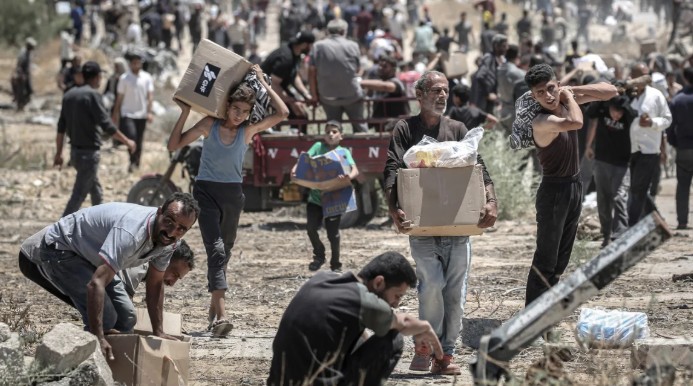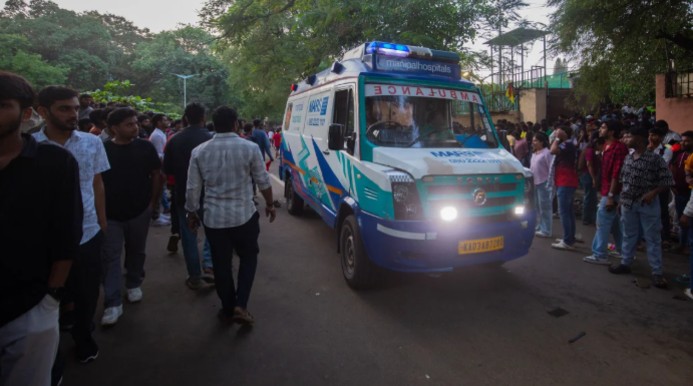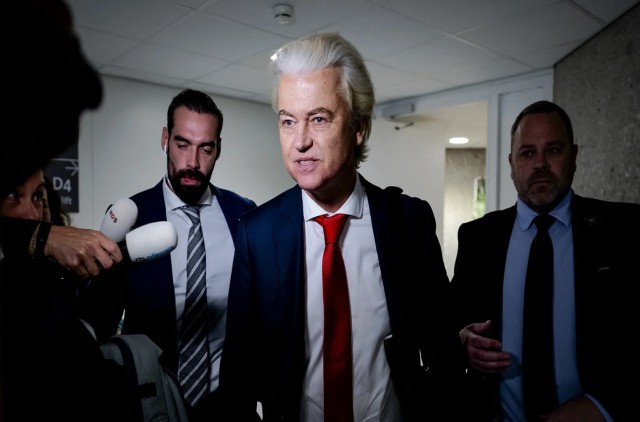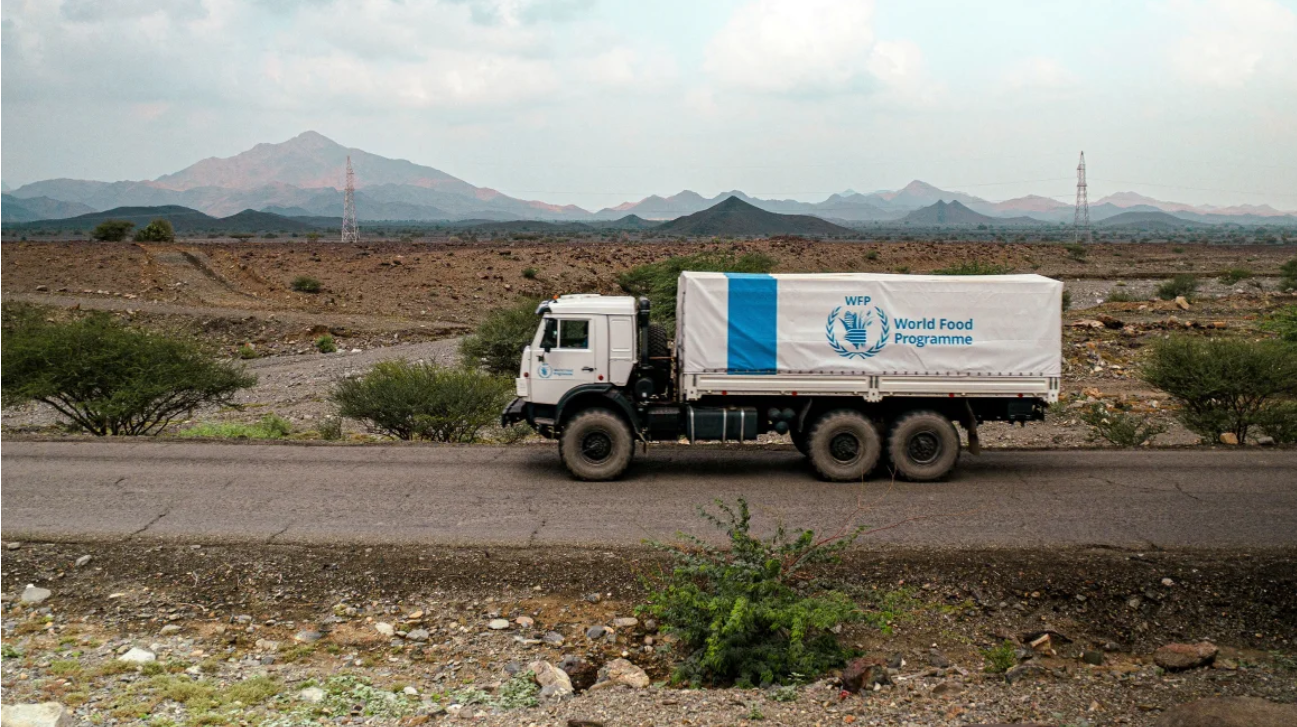
Palestinians move boxes of humanitarian aid collected from a distribution center in the Netzarim Corridor, central Gaza Strip, on May 29.
The Gaza aid distribution led by the Gaza Humanitarian Foundation (GHF) was suspended for 24 hours on Wednesday following deadly violence near distribution routes. The pause came after three consecutive days of fatal shootings targeting Palestinians heading to collect aid.
Temporary Halt After Fatal Fire
GHF, supported by the US and Israel, temporarily closed its aid hubs. The organization said the break was needed to manage overwhelming crowds and allow the Israeli military to prepare access routes. Aid distribution is expected to resume Thursday.
The Israeli Defense Forces (IDF) issued a warning to Palestinians to avoid roads leading to GHF centers. These roads, according to IDF spokesperson Avichay Adraee, are now considered active combat zones.
Deadly Consequences Along Aid Routes
Despite GHF's claims of safety inside its distribution sites, the danger lies outside. Palestinian officials report dozens killed over the past few days as people approached GHF centers. On Tuesday alone, nearly 30 people were killed, and many more injured. The IDF confirmed it opened fire multiple times after spotting what it described as "suspects" who strayed from approved routes.
On Sunday, 31 people reportedly died due to Israeli gunfire. Eyewitnesses and medical sources blamed the IDF. While the military denies firing at civilians near the aid site, it acknowledged shooting at individuals a kilometer away, before distribution began.
The relatives of Palestinians who lost their lives while on the way to trying to obtain aid from an aid hub in the Al-Alam area of Rafah mourn for their loved ones at Nasser Medical Complex in Khan Younis, Gaza, on Tuesday.
GHF Pushes for Safer Operations
GHF says it is actively coordinating with the Israeli military to improve safety around aid routes. Requests include diverting foot traffic away from military zones, clearer public guidance, and better training for IDF soldiers.
A GHF spokesperson emphasized the need for safer access to food, stating, “We are working to ensure people can reach aid sites without fearing for their lives.”
Aid Flow Still Critically Low
On Tuesday, 157 aid trucks entered Gaza, according to COGAT, Israel’s aid coordination agency. These supplies were split between GHF and the UN. However, this is far below the 500–600 trucks that arrived daily before the conflict.
While the UN and other agencies continue delivering aid, many major humanitarian organizations refuse to work with GHF. Critics argue the foundation undermines humanitarian principles and advances Israeli military interests by centralizing aid in Gaza’s south.
Leadership Shakeup Sparks Doubts
GHF faced early turbulence when its first executive director, Jake Wood, resigned just before operations began. Wood, a US military veteran, cited concerns over impartiality and pushed for broader access to aid.
On Tuesday, evangelical leader Rev. Johnnie Moore was named the new head of GHF. Moore committed to ramping up food distribution and called GHF’s mission a success. “We are proving it’s possible to deliver large-scale aid safely and effectively,” he said.
UN Criticism Adds Pressure
The United Nations has heavily criticized the GHF initiative. UN humanitarian chief Tom Fletcher didn’t hold back at a recent Security Council meeting. He accused GHF of politicizing food aid and using starvation as a weapon.
“It’s a cynical sideshow,” Fletcher said. “It’s not about humanitarianism. It’s about manipulation.”
GHF Stands Firm Amid Backlash
Despite international criticism, GHF remains committed to its strategy. In a recent statement, the foundation said, “Our only goal is to feed those in desperate need. Right now, no one else is operating at our scale with such consistency.”
GHF continues to insist its sites are safe. However, violence on the approach routes and growing criticism from international bodies raise urgent questions about the viability and ethics of its mission.
As Gaza’s hunger crisis worsens, the controversy around the US-Israel backed GHF grows. While the foundation claims success in delivering aid, the cost in human lives and the intense global criticism suggest a deeper crisis—where food, politics, and conflict tragically collide.















